Guest Editorial: Under Her Wings: The Pollomorphic God
By Carol J. Adams
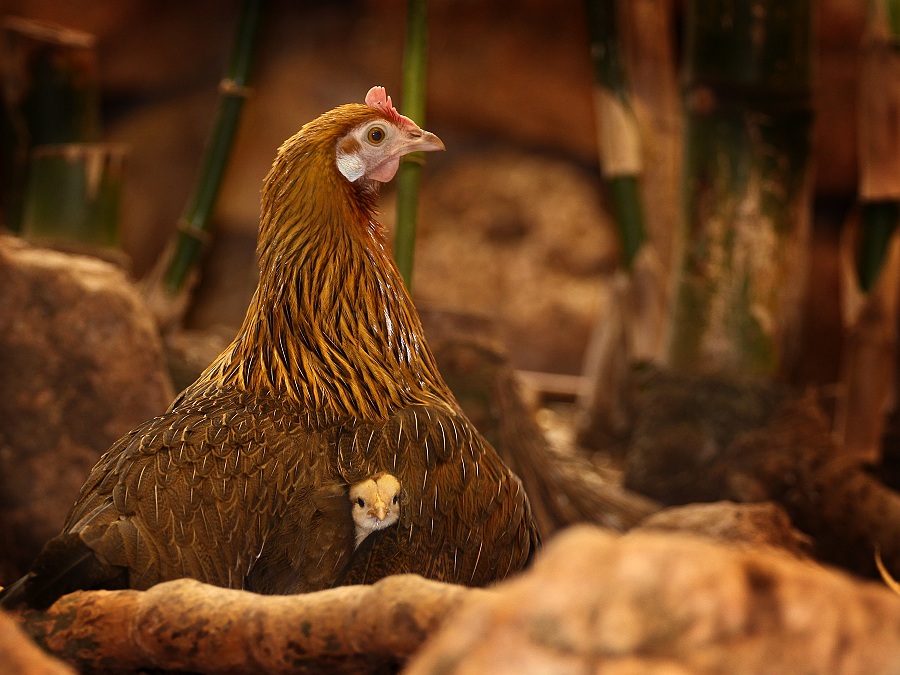
I am interested in what appears to me to be a contradiction.
It is good, natural, Biblical, theological, to anthropomorphize God.
It is (usually) not good, natural, Biblical, theological, to anthropomorphize animals, especially if it is in an attempt to ameliorate human relationships with domesticated or otherwise institutionalized animals.
I began thinking about this when, many years ago I read this sentence in philosopher Mary Midgley’s Animals and Why They Matter: “Anthropomorphism is a remarkable concept. It may be the only example of a notion invented solely for God, and then transferred unchanged to refer to animals.” (p. 125)
God as Human
How is God anthropomorphized? We refer to God in terms that we associate with humans: God is a father, a lord, a ruler. And we refer to God’s attributes in language that we associate with humans: God loves us, God gets angry with us, God is jealous. We refer to God as having the body parts of humans (God’s feet were heard as God walked in the Garden of Eden; God’s mighty hand and outstretched arm rescued the slaves at the parting of the Red Sea, God’s sensitive hand like a skilled potter's formed us from the dirt of the ground, and God’s breath lovingly blown into our nostrils gave us life. In Exodus 33, God--speaking in language Moses can understand--refers to God’s hand and God’s back and God’s face (the latter which Moses is not permitted to see). God hears us--that is, has ears.
My partner, a Presbyterian minister, did a sermon series answering questions posed by his congregation. One question was, “How do you picture God?” After describing these anthropomorphic references to God in the Hebrew Scriptures, Bruce referred to these as a “Divine anatomy lesson,” but suggested, “These references should not be taken as a realistic description of God’s being, but rather these references are examples of how we visualize God based upon how God works in the world.”
God as Bird
We could turn to Biblical examples of God not anthropomorphized, but pollo-morphized: i.e., represented as a chicken.
In the beginning, God hovered or brooded over the earth.
The first image of God in the Bible is of a brooding female bird; the earth is God’s egg, or chick, upon which God is hovering, or brooding. John Wesley comments thus on Genesis 1:2, “The Spirit of God was the first Mover; He moved upon the face of the waters--He moved upon the face of the deep, as the hen gathereth her chicken under her wings, and hovers over them, to warm and cherish them, Mt 23:37 [and] as the eagle stirs up her nest, and fluttereth over her young, ('tis the same word that is here used)."
I asked activist Karen Davis to define brooding for us. She wrote: “‘Brooding’ is when a hen decides --has a mind-- to sit on a clutch of eggs, and her mood to do so is called ‘broody.’ She’s a ‘broody hen’ because she is totally focused on her eggs/embryos and, after they hatch, on keeping her chicks warm, dry and safe, by taking them periodically through the day, and at night, under her wings for the first two months or so."
Before there were humans, the Biblical writers tell us, there was the idea of the chicken, or of some fowl who behaves similarly to chickens. One thing this opening of Genesis seems to me to say, is that before chickens even existed, God had in God’s mind (there I go anthropomorphizing) the idea of the chicken, the idea of what a chicken’s maternal care looked like. Do we perhaps anthropomorphize God to avoid encountering God pollomorphized?
In Deuteronomy 32: 11-12, God is represented as an eagle mother who not only nurtures her young, but empowers them as well; there is a suggestion that she makes the nest uncomfortable so they will try their wings, but if they don't make it, she catches them: “As an eagle stirreth up her nest, fluttereth over her young, spreadeth abroad her wings, taketh them, beareth them on her wings: So the Lord alone did lead him, and there was no strange god with him.” (KJV) Similarly, in Isaiah 31:5 "Like birds hovering overhead, the LORD Almighty will shield Jerusalem; he will shield it and deliver it, he will 'pass over' it and will rescue it."
The idea of God's being like a chicken makes many uncomfortable--or perhaps ought to. In Bill Watterson's comic strip Calvin and Hobbes, an anxious Calvin at the dinner table raises the prickly question to his oblivious parents: "What if we die and it turns out God is a big chicken?
What then ?!" Calvin shouts the obvious answer, perhaps, to his own question about a pollomorphized God: “Eternal consequences, that’s what!”
God and (Real) Animals
Another response is to recognize that the biblical God refers to animals praying to God. Job 38: “Who provides for the raven its prey, when its young ones cry to God, and wander about for lack of food?” Of the many things going on in this extended passage, two stand out for this issue: God answered Job out of the whirlwind, describing the incredible power and beauty of the “natural world,” and then turns toward examples from the other animals. God discusses the animals in ways that are not anthropomorphic or anthropocentric but acknowledge their own identity and needs. These animals, too, can cry to God; there is even a suggestion (Job 39) that the wild ass was once a slave, carrying burdens for humans in a city--his own Egypt--but has been liberated: “Who has let the wild ass go free? Who has loosed the bonds of the swift ass, to whom I have given the steppe for his home, and the salt land for his dwelling place?” Then again, God presents the animals as making decisions, “[the wild ass] scorns the tumult of the city; he hear not the shouts of the driver…” “Is the wild ox willing to serve you?”
In the Psalms, the other animals have the ability to praise God: "Praise the Lord . . . . beasts and all cattle, / Creeping things and flying birds!" (Psalm 148: 7, 10). (St. Francis wasn't the first to urge the birds to praise God!) In Revelation, we find animals around the throne praising God, saying "Holy, Holy, Holy. . ." (Revelation 4:8-9).
We could also consider the telos, the ultimate purpose, of animals. For centuries the Christian mainstream has held that they are here to serve human purposes. But when we try to take the porcine or the divine point of view, other possibilities open. What is the telos of any individual animal? Gary Comstock has written compellingly about how the telos of a pig is to root; a case might also be made that it is to play, to snuggle, or to eat. (Perhaps the telos of Balaam’s ass is to recognize and relate to angels?) Why do we assume the animals exist to please us rather than God and themselves?
Jesus, the Good News, and the Animals
A discussion of the remedies to the potential Christian double standard in anthropomorphism is incomplete without considering Jesus. Jesus continues the tradition of pollomorphizing we found in the Hebrew Scriptures. In Matthew 23:37, he says longingly, “O Jerusalem, Jerusalem… how often would I have gathered your children together as a hen gathers her brood under her wings, and you would not!”
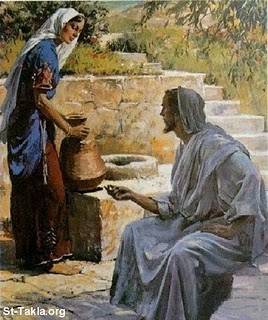 But many of the stories about Jesus’s ministry acknowledge that similarity is not the basis for an ethical standard. Think for instance of the Samaritan woman’s comments at the well (John 4), such as, "How is it that you, a Jew, ask a drink of me, a woman of Samaria?" and her emphasis on their differences. Jesus’s ministry is not about someone having to be like us to be the recipient of unconditional love. The fact is that if it’s truly unconditional love, the giver and the receiver don’t have to be alike.
But many of the stories about Jesus’s ministry acknowledge that similarity is not the basis for an ethical standard. Think for instance of the Samaritan woman’s comments at the well (John 4), such as, "How is it that you, a Jew, ask a drink of me, a woman of Samaria?" and her emphasis on their differences. Jesus’s ministry is not about someone having to be like us to be the recipient of unconditional love. The fact is that if it’s truly unconditional love, the giver and the receiver don’t have to be alike.
Echoing Deut.. 10:19 and Ex. 23:9, Jesus teaches us to welcome the stranger, the alien, in our midst into fellowship. What is stranger than nonverbal beings to someone operating from standards of anthropomorphism? Jesus teaches us hospitality for all, even society's outcasts. Does this include sheltering animals as a hen would gather her chicks? In the 21st century, does this require working against factory farms and recognizing that table hospitality extends to not putting animals on the plate? Jesus teaches us nonviolence . . .to put down the sword. For the 21st century Christian does this include our knives and forks when they become weapons against the other animals?
In the end, the problem isn’t that anthropomorphism is a double standard, but that the standards of anthropomorphism are problematic, if not dangerous. Maybe it’s not a double standard, but a false standard.
Jesus was one of us, but the good news of his ministry wasn’t based on similarity. It is not our likeness to one another that matters; it is the quality of our relationships with each other.
Alike and Unlike
If we can recognize the inherent biases that occur with a belief in an anthropomorphized God and a “theo”-morphized human being, we can become more care-ful about the fate of animals. We can unmoor ourselves from having to be in the image of God (or, perhaps, seeing ourselves in a false image of God), and the limits that imposes on God and us, so that we can live, and live well, on the Earth. It reminds us of our difference from God, and more to the point, God’s difference from us.
If the fact that anthropomorphizing God helps perpetuate the legitimateness of an anthropomorphic standard, and one of the results of that standard is to support the yearly killing of ten billion land animals in the United States alone (most of them chickens), then we have to consider the implications of continuing to do it, even if, in and of itself, such anthropomorphizing in God’s case is legitimate. It’s all part of a greater relationship.
It’s interesting that when we turn to the New Interpreter’s Bible, regarding Genesis 1:26, the writers tell us “have dominion [rada]” “must be understood in terms of caregiving, even nurturing, not exploitation.”
We have been given rada! What God did at creation, what Jesus wanted to do to Jerusalem, it is now our turn to do: to relate to the world, the created order, as a hen does to her chicks.
We must take them—the animals--under our wing.
 This essay is derived from "Anthropomorphism: The Christian Double Standard? A Reflection", the fourth annual Animals and the Kingdom of God Lecture, given by Carol Adams at Calvin College, Grand Rapids, Mich., on March 11, 2011. Copyright 2011 by Carol J. Adams.
This essay is derived from "Anthropomorphism: The Christian Double Standard? A Reflection", the fourth annual Animals and the Kingdom of God Lecture, given by Carol Adams at Calvin College, Grand Rapids, Mich., on March 11, 2011. Copyright 2011 by Carol J. Adams.
Photo of hen and chick by Alena. Cartoon strip by Bill Watterson, copyright by Andrews McMeel Publishing Co. Permission to reproduce sought.
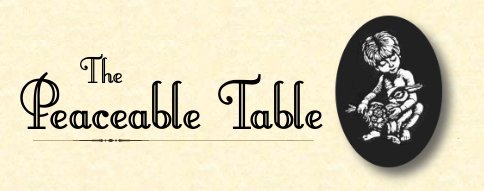
 ". . . So far as [God's] love influences our minds, so far we . . . feel a desire to take hold of every opportunity to lessen the distresses of the afflicted and increase the happiness of creation."
". . . So far as [God's] love influences our minds, so far we . . . feel a desire to take hold of every opportunity to lessen the distresses of the afflicted and increase the happiness of creation." On March 30 five little pigs, apparently fallen from a truck bound for market, turned up on Interstate-40, blocking traffic and prompting commuters to call police. The half-grown piglets were arrested and taken to the shelter of the Durham (N.C.) Animal Protection Society, where their winsome personalities and lively play won friends. Despite much publicity, their "owners" did not claim them, but both farmers and animal lovers expressed strong interest in getting them. As state law required, they were sold at auction on May 27, all going to an "angel," happily. Their new
On March 30 five little pigs, apparently fallen from a truck bound for market, turned up on Interstate-40, blocking traffic and prompting commuters to call police. The half-grown piglets were arrested and taken to the shelter of the Durham (N.C.) Animal Protection Society, where their winsome personalities and lively play won friends. Despite much publicity, their "owners" did not claim them, but both farmers and animal lovers expressed strong interest in getting them. As state law required, they were sold at auction on May 27, all going to an "angel," happily. Their new 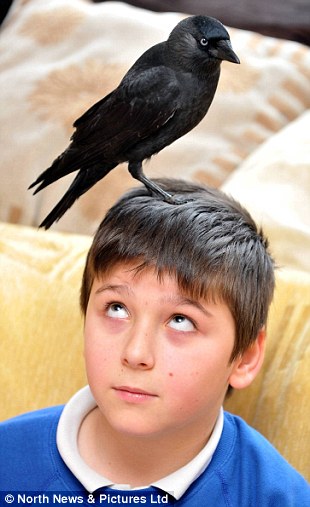
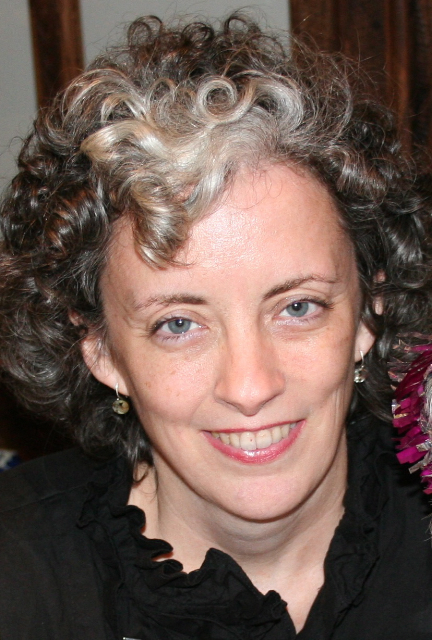 I have been reading The Peaceable Table for some time and enjoy it immensely, although I approach vegetarianism from a slightly different standpoint. Because of this, I wanted to offer my response to two comments made in this most recent newsletter. One was the comment that "humans are herbivores (or healthiest) as such...for us to eat animals is culture not nature." From what I read of anthropological research, I agree that culture (e.g. tool-using) evolved alongside meat-eating, whether scavenging or hunting or both. Although certainly human culture can grow and change (and we hope it does), I do not think we can so easily dismiss the fact that meat-eating is deeply embedded in the human make-up. Humans and culture are inseparable; culture is, in some ways, what distinguishes us--perhaps in degree, not absolutes--from other animals. And the culture of meat-eating seems to stem from our very origins as hominids--or perhaps even as primates, since in recent decades scientists have discovered that other primates are meat-eaters and even hunters. So to say [or] suggest, even indirectly, that we should merely be "natural" is a somewhat simplistic if not illogical solution, and to state that humans are herbivores, as I understand from contemporary research, is incorrect. (It would be more correct, I think, to say that humans "can be" herbivores.)
I have been reading The Peaceable Table for some time and enjoy it immensely, although I approach vegetarianism from a slightly different standpoint. Because of this, I wanted to offer my response to two comments made in this most recent newsletter. One was the comment that "humans are herbivores (or healthiest) as such...for us to eat animals is culture not nature." From what I read of anthropological research, I agree that culture (e.g. tool-using) evolved alongside meat-eating, whether scavenging or hunting or both. Although certainly human culture can grow and change (and we hope it does), I do not think we can so easily dismiss the fact that meat-eating is deeply embedded in the human make-up. Humans and culture are inseparable; culture is, in some ways, what distinguishes us--perhaps in degree, not absolutes--from other animals. And the culture of meat-eating seems to stem from our very origins as hominids--or perhaps even as primates, since in recent decades scientists have discovered that other primates are meat-eaters and even hunters. So to say [or] suggest, even indirectly, that we should merely be "natural" is a somewhat simplistic if not illogical solution, and to state that humans are herbivores, as I understand from contemporary research, is incorrect. (It would be more correct, I think, to say that humans "can be" herbivores.) 1 tsp. Dijon mustard
1 tsp. Dijon mustard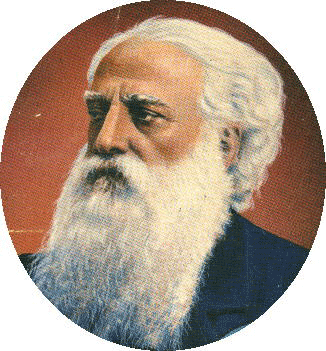 Olcott resided in India the remainder of his life, as international president of the Theosophical Society, as traveling lecturer and psychic healer, and as friend of Buddhism. He encountered the latter faith first in Ceylon (now Sri Lanka), and subsequently represented grievances of Buddhists in that beautiful isle "where every prospect pleases, and only man is vile" to the Colonial Office in London, winning some reforms. He is still regarded as a national hero in Sri Lanka.
Olcott resided in India the remainder of his life, as international president of the Theosophical Society, as traveling lecturer and psychic healer, and as friend of Buddhism. He encountered the latter faith first in Ceylon (now Sri Lanka), and subsequently represented grievances of Buddhists in that beautiful isle "where every prospect pleases, and only man is vile" to the Colonial Office in London, winning some reforms. He is still regarded as a national hero in Sri Lanka.